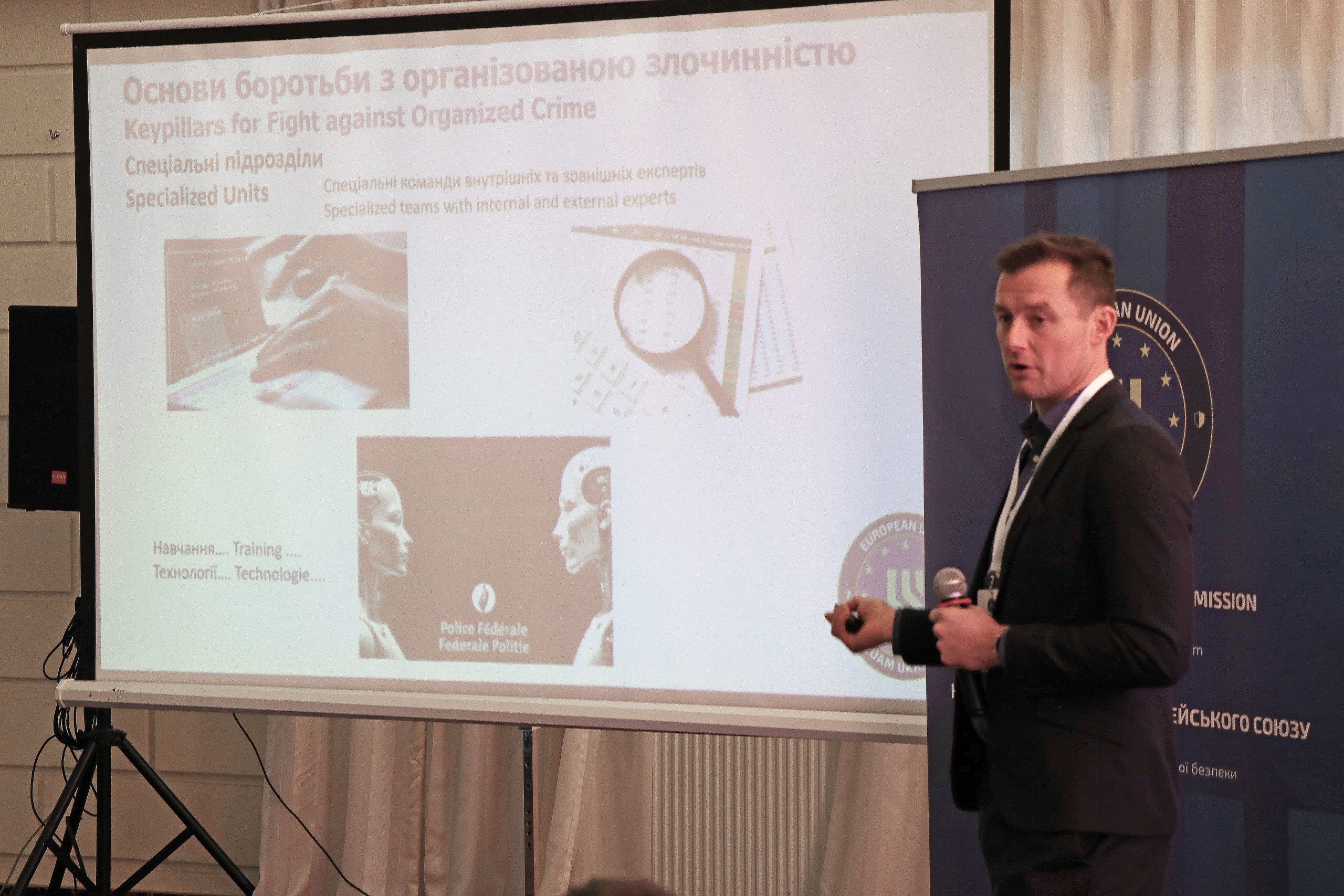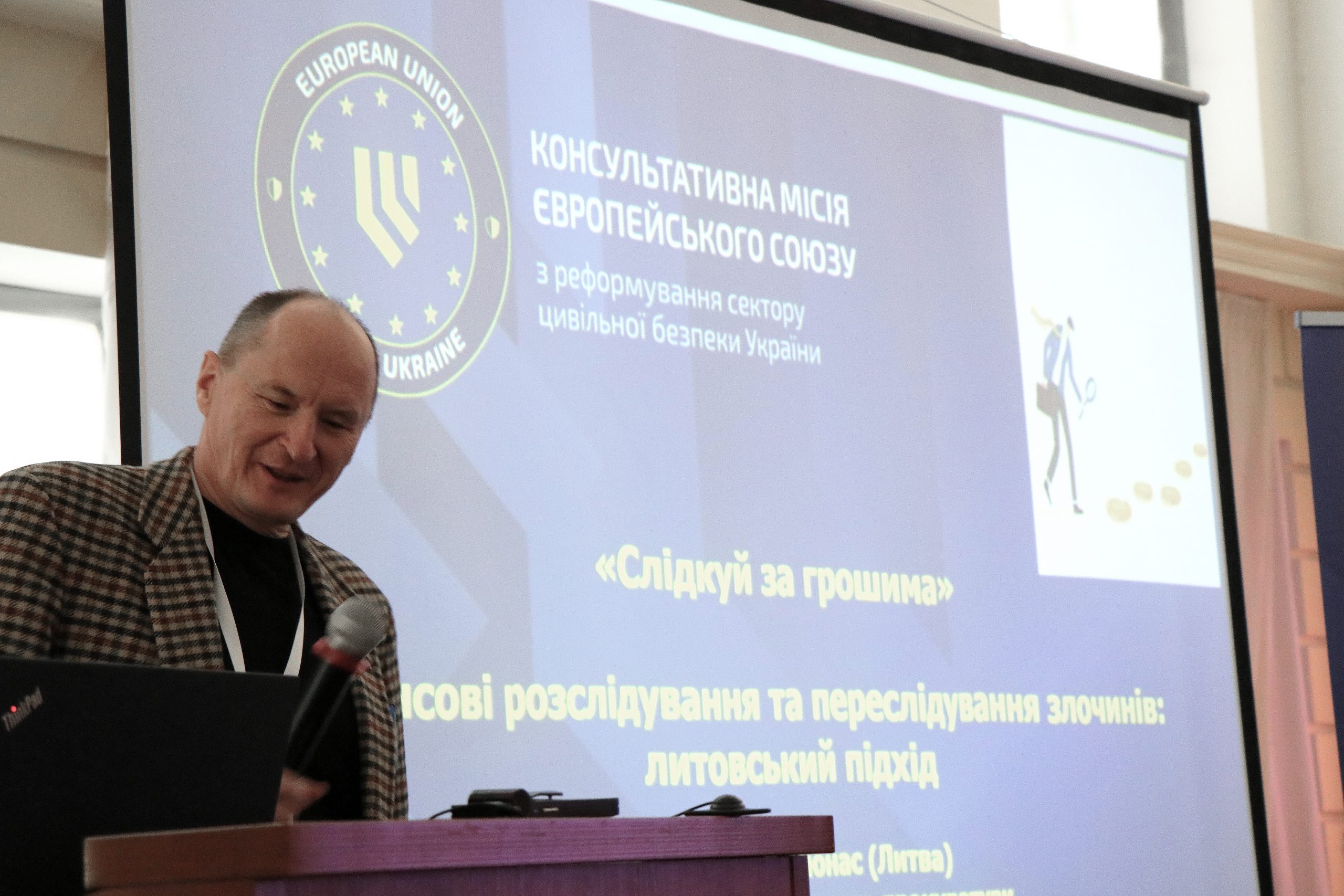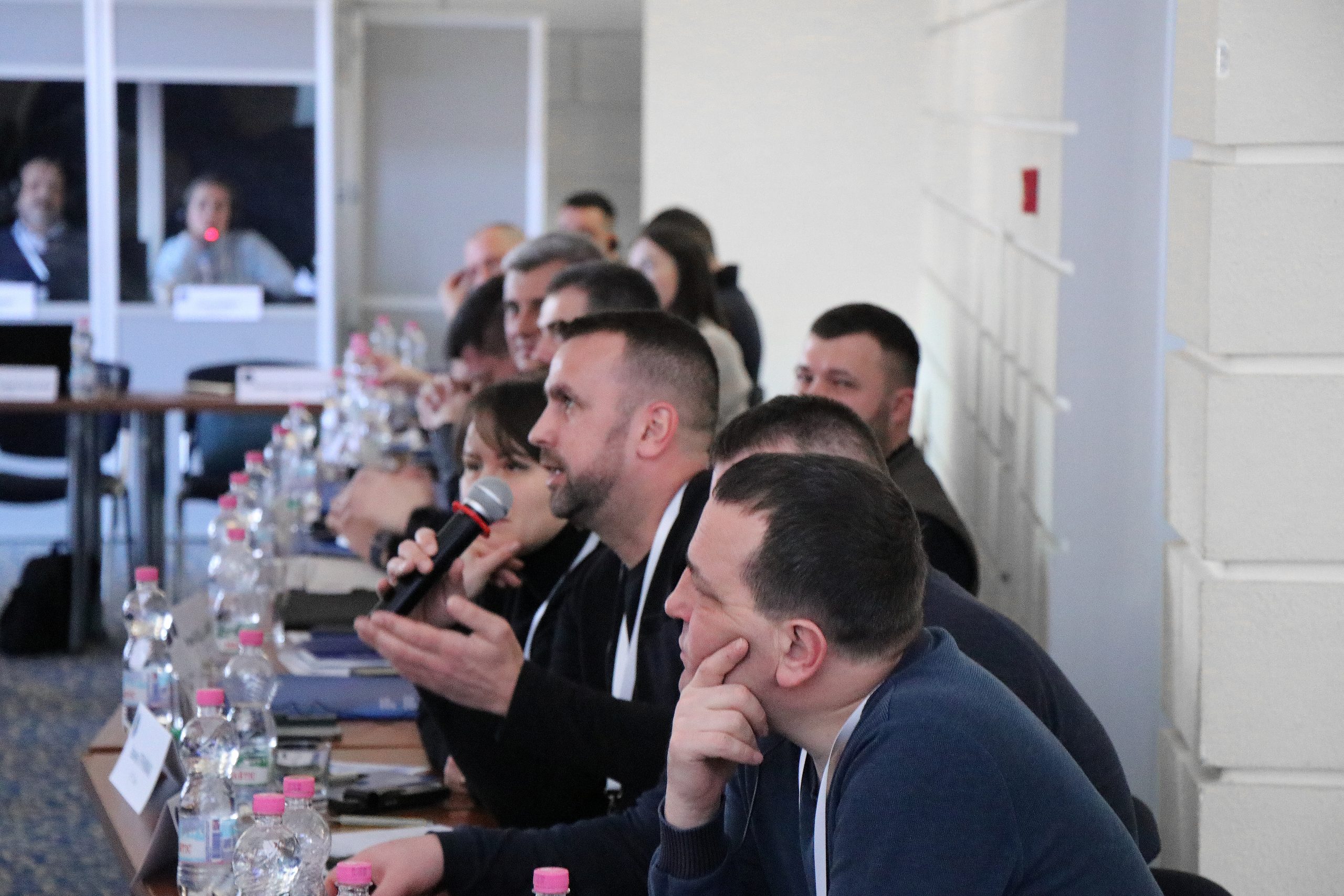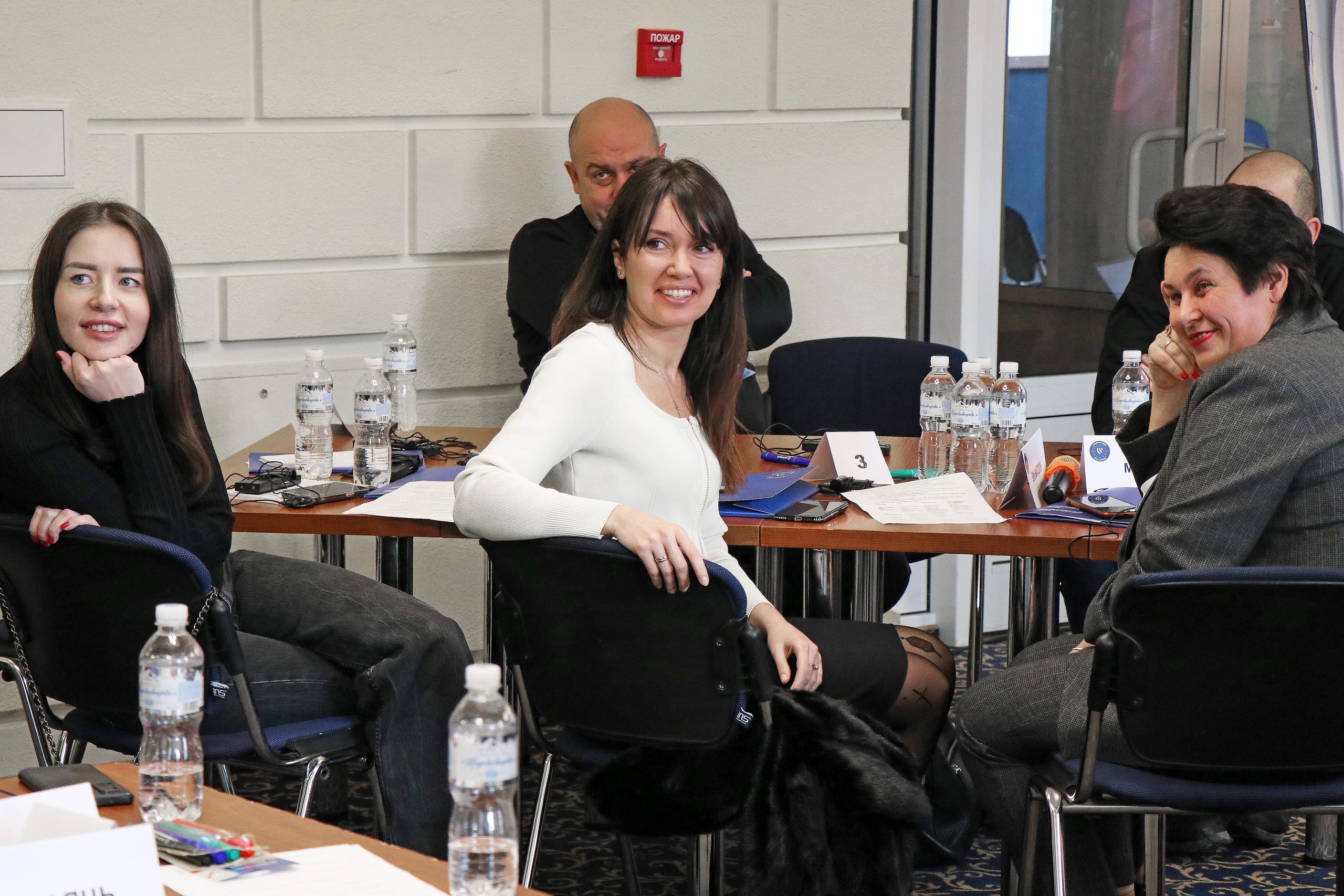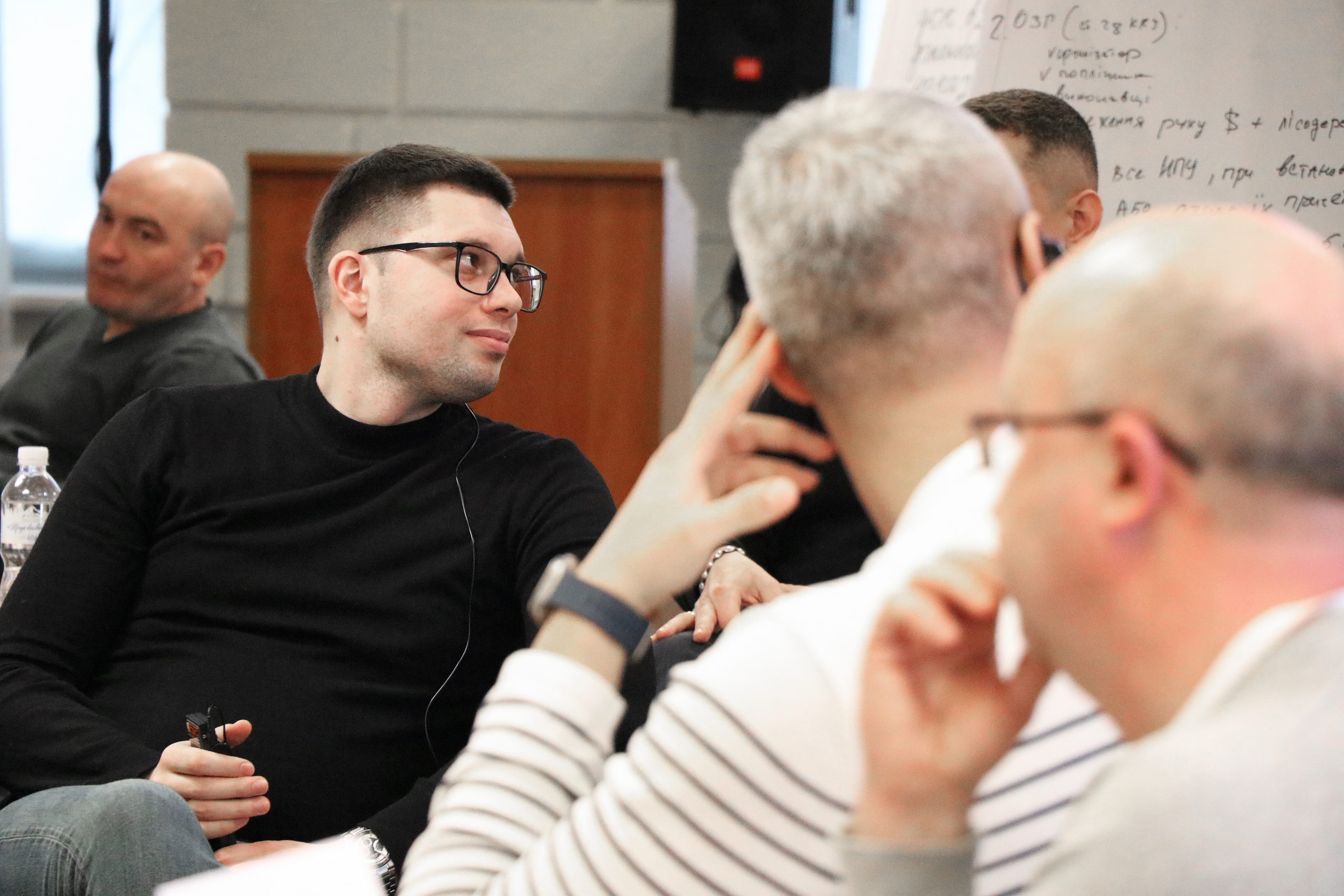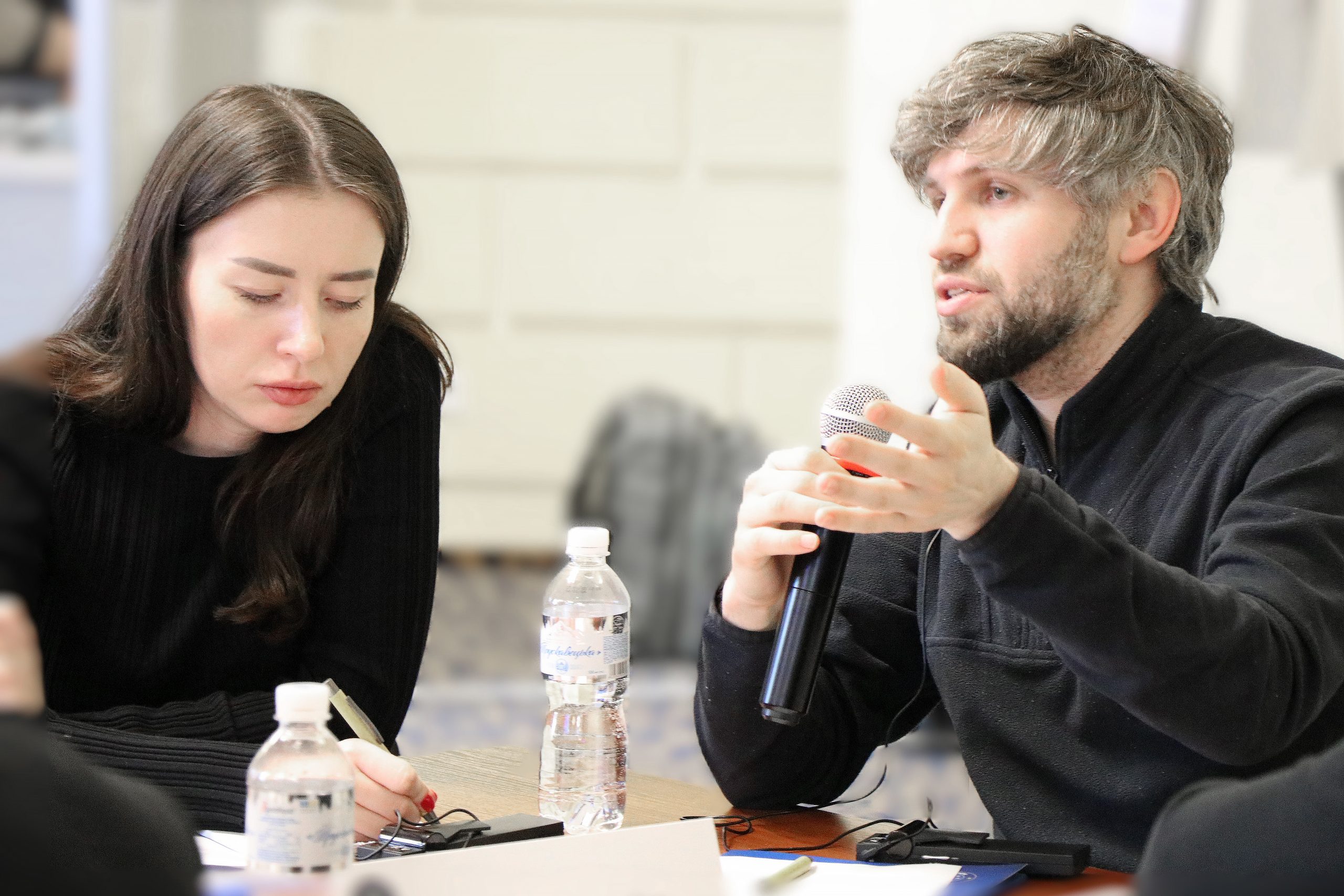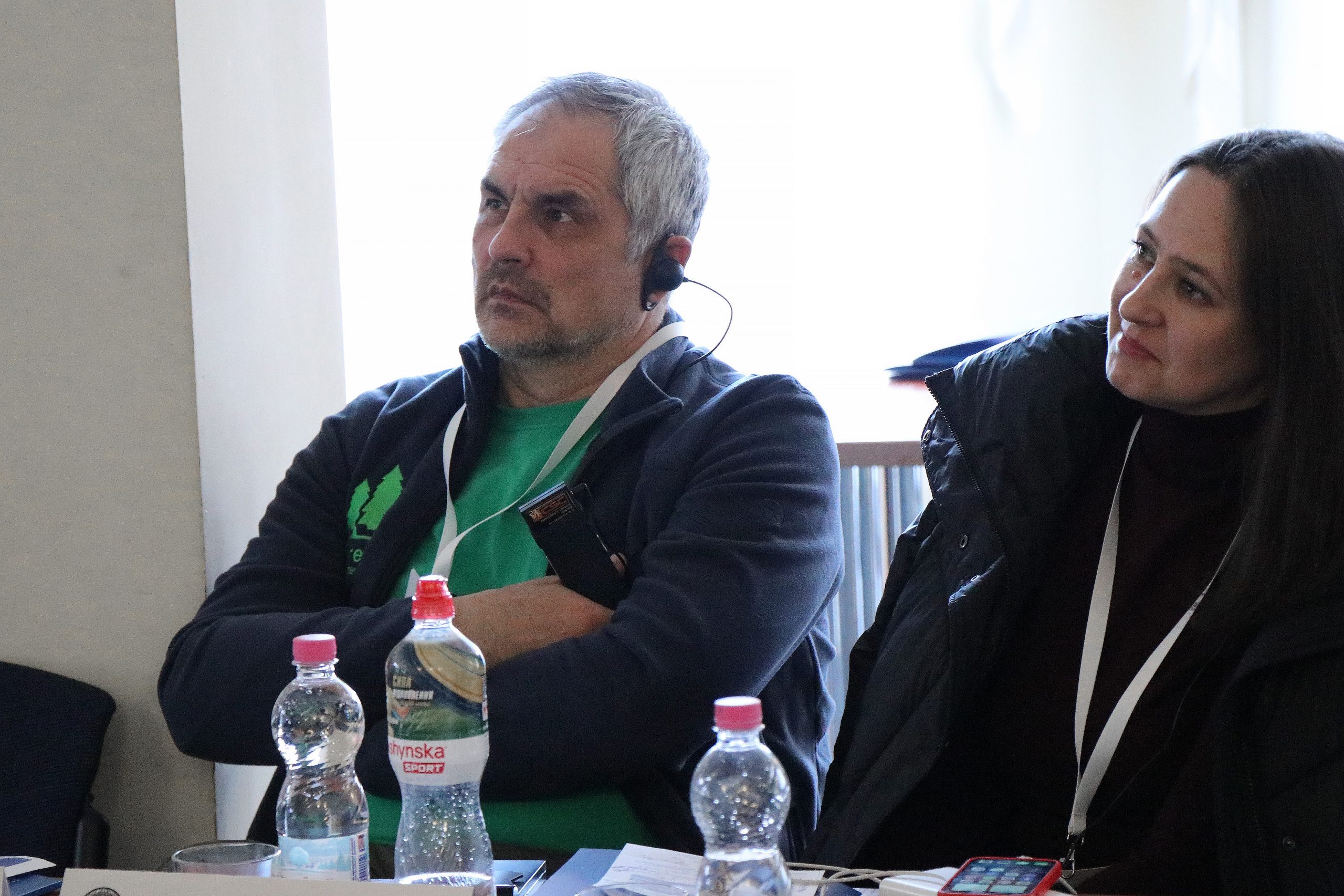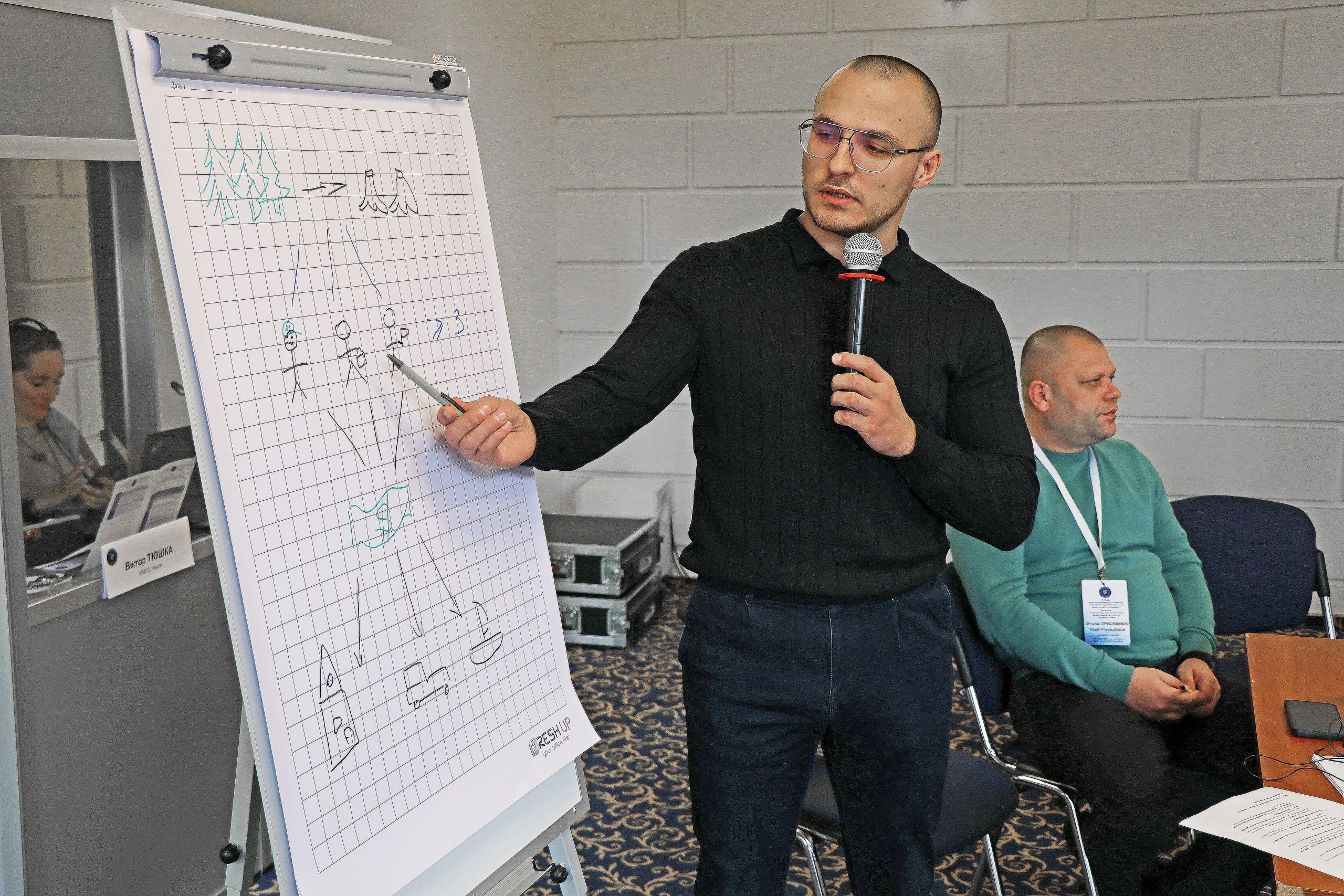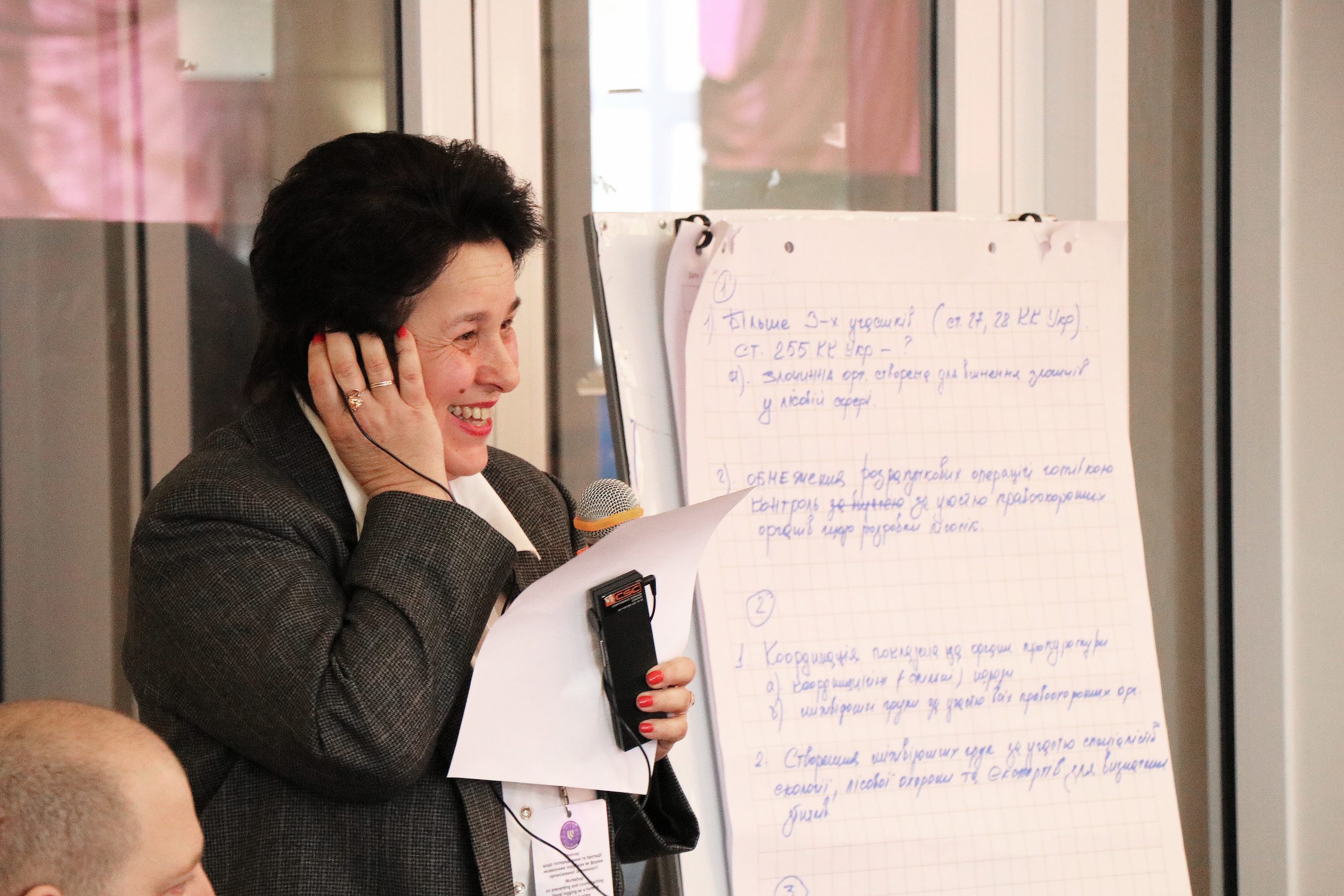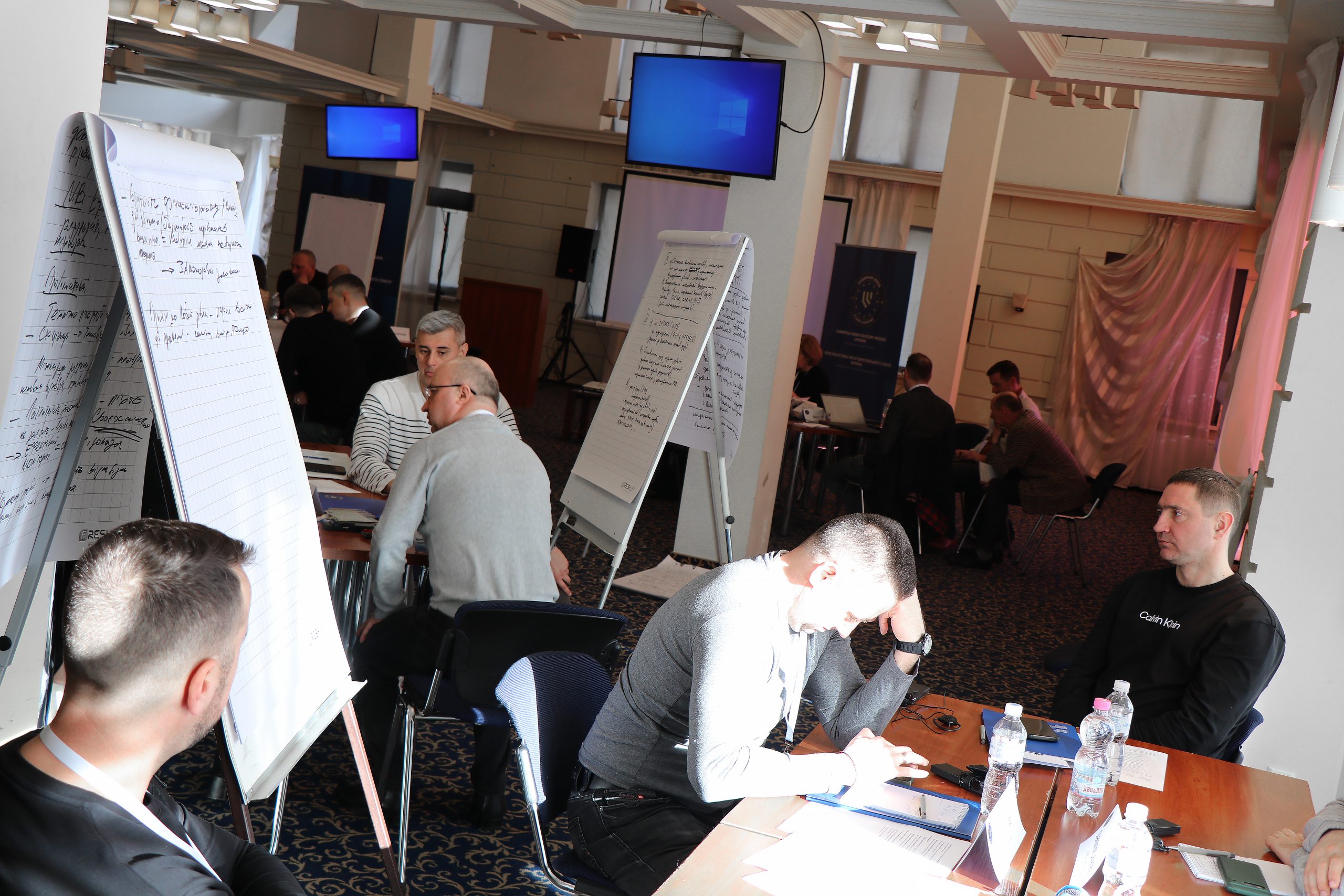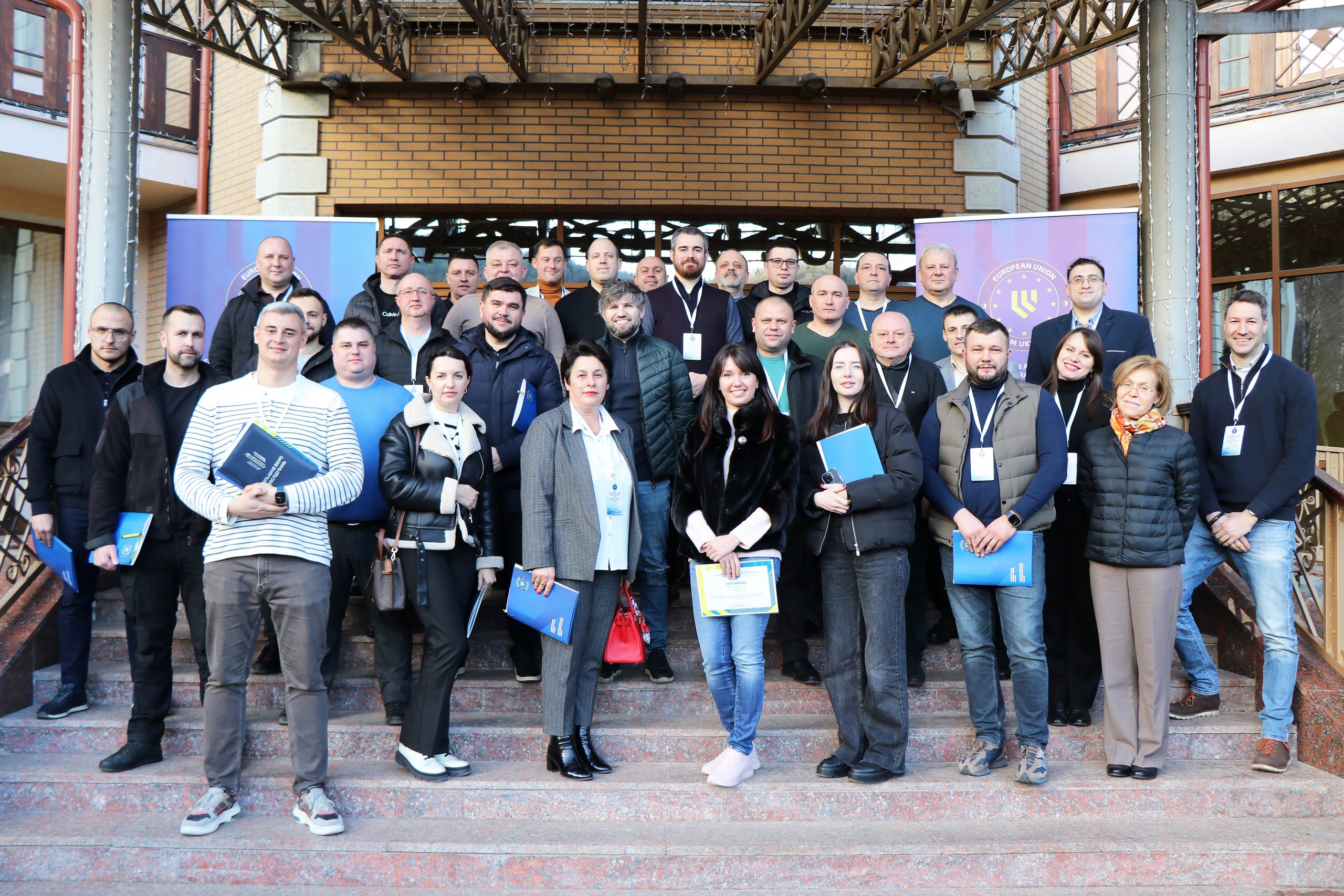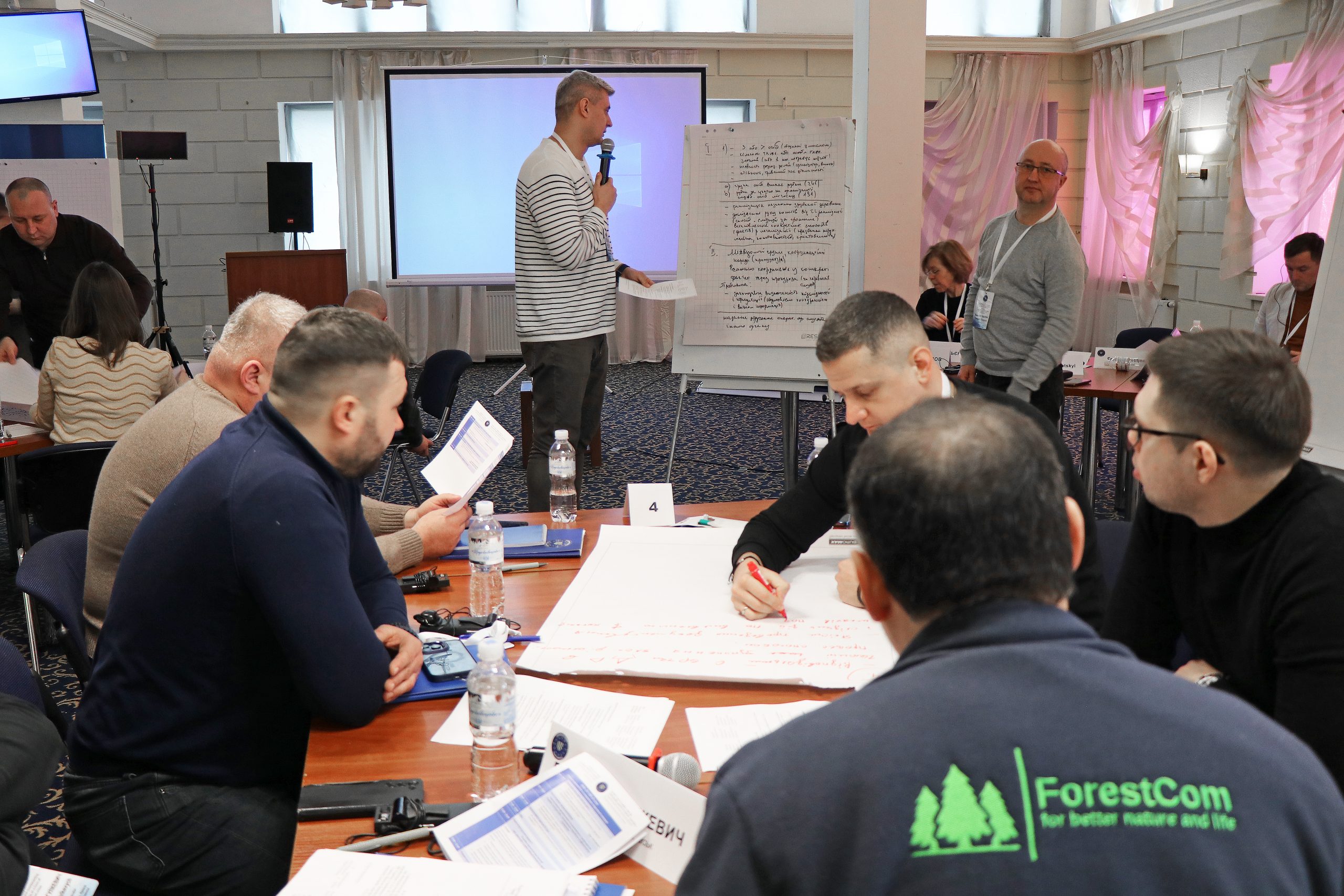How to Combat Illegal Logging as Organised Crime Effectively: Workshop for Ukraine’s Law Enforcers and Civil Society
February 10, 2025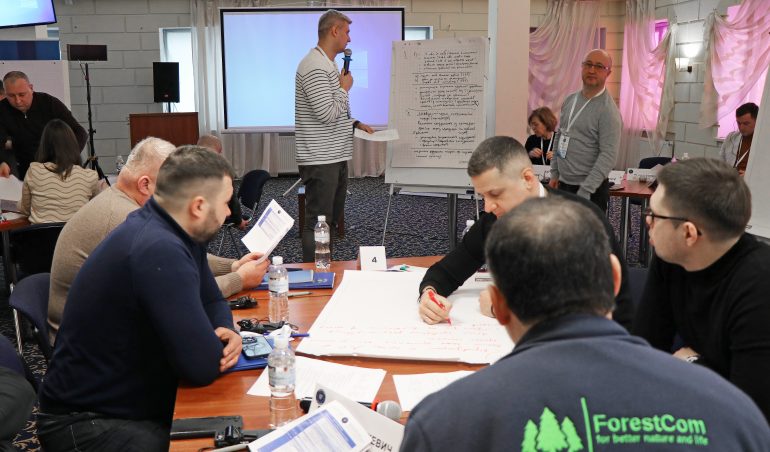
If people are asked what the Carpathian Mountains mean to them, many would recall fond memories of childhood spent in the Carpathian forests, school camps, or the majestic Hoverla peak. They might remember the rushing mountain streams and the awe-inspiring beech trees, and perhaps the unique taste of wild blueberries picked right from the bush.
Now, imagine that your grandchildren could only see the Carpathian forests in pictures, and read about the beech and spruce trees in books or view them in old photos and videos. It’s hard to believe, but this could very well be the future. Unfortunately, illegal logging in the Carpathians over the past decades has been devastating the region’s unique ecosystem. And it’s not just an environmental disaster – it’s a well-organised criminal enterprise, with networks extending beyond Ukraine’s borders.
This is why the EU Advisory Mission (EUAM) Ukraine recently held a two-day workshop in Yaremche, where key stakeholders from law enforcement agencies, civil society organisations, and investigative journalists gathered to discuss Ukraine’s fight against illegal logging as a form of organised crime. Representatives from the State Bureau of Investigation, the National Police of Ukraine, the Economic Security Bureau of Ukraine, the Office of the Prosecutor General of Ukraine, and the National Anti-Corruption Bureau of Ukraine were among those present, aiming to enhance inter-agency cooperation, intelligence-sharing, and strategic case-building.
Illegal logging, a complex and highly sophisticated form of environmental crime, is often tied to other serious criminal activities, including corruption, financial crimes, and smuggling. Many cases involve organised criminal groups using document fraud, bribery, and illicit enrichment. However, legal barriers often prevent law enforcement from treating forestry crimes as serious offences, which limits their ability to deploy advanced investigative techniques like surveillance, wiretapping, and undercover operations. These tools are crucial for dismantling organised crime rings. Addressing these challenges requires not only enhanced inter-agency cooperation but also significant legislative reforms to close existing loopholes and provide law enforcement with the necessary tools to target high-level offenders effectively.
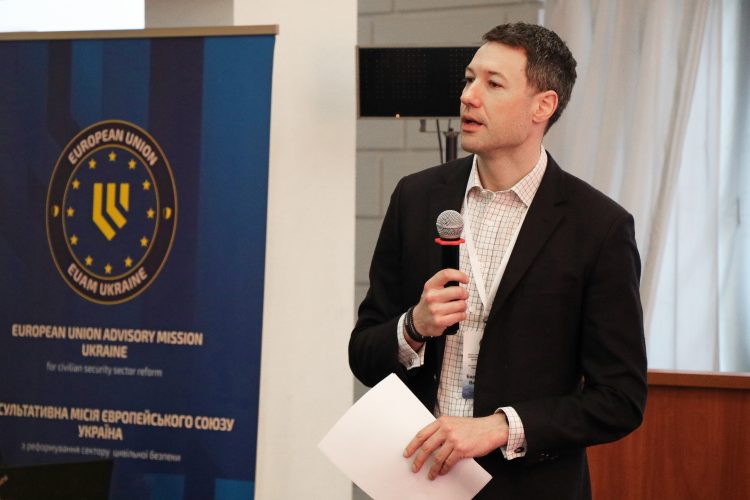
“To combat illegal logging effectively, we must move beyond treating these cases as isolated incidents and start targeting the broader criminal structures behind them. That means working together across agencies, taking a more strategic approach, and not shying away from building bigger cases that expose corruption, financial flows, and organised crime ties,” said Bart Scheffers, EUAM’s Adviser on Good Governance from the Field Office Lviv.
One key focus of the workshop was expanding the use of financial investigations, asset tracing, and cross-border cooperation. The sessions highlighted the critical need to freeze assets early in an investigation. This prevents the disappearance of proceeds. Discussions also covered the challenges and significance of mutual legal assistance (MLA) in tracing illicit profits abroad.
The workshop also served as a platform for exchanging best practices from European partners. EUAM’s Adviser/Trainer on Criminal Investigations, Mr. Fréderic Petitjean, outlined Belgium’s structured approach to tackling organised crime, emphasising multi-agency coordination, intelligence-led policing, and strategic case development. Meanwhile, EUAM’s Senior Adviser on Prosecution, Mr. Gediminas Buciunas, presented Lithuania’s experience in applying the ‘follow the money’ principle early in investigations, demonstrating how tracking illicit financial flows strengthens prosecutions, enables asset freezes, and enhances international cooperation for recovering proceeds abroad.
The participants also explored post-factum investigations using the Serious and Organised Crime Threat Assessment (SOCTA) methodology, prioritising forestry-related crime and ensuring a more coordinated, intelligence-driven response. Discussions covered the role of illegal sawmills, the challenges of proving the organised crime component in forestry cases, and the need for regional joint investigations and inter-agency cooperation.
For more effective investigations, the cooperation between law enforcement professionals, prosecutors, civil society activists, and investigative journalists is crucial. This workshop succeeded in bringing all these groups together. The discussions were highly constructive, focusing on exchanging ideas on how to overcome jurisdictional challenges, enhance intelligence sharing, and ensure that financial crimes related to illegal logging do not go unpunished.
“As a representative of the civil society, I found the format of the workshop, which included both our side and representatives of law enforcement agencies, useful,” said Olena Mudra, journalist at NGO “Eco-Sphere” (Uzhhorod, Zakarpattia region). “In my opinion, over the past three years, since the beginning of the full-scale invasion, the dialogue between environmental NGOs and law enforcement agencies on the topic of environmental crimes in the rear has significantly deteriorated. I hope that such workshops will contribute to the restoration of lost cooperation and trust, the strengthening of existing and the establishment of new ties for joint work on the preservation of the Carpathian forests, their biodiversity and protected nature.”
This workshop reinforces EUAM’s commitment to supporting Ukrainian partners in tackling organised crime and corruption, strengthening law enforcement capabilities, and advocating for reforms that enable a more effective, intelligence-led approach to crime investigations.


